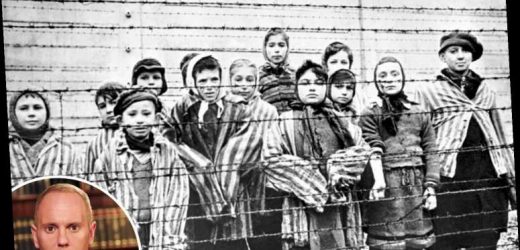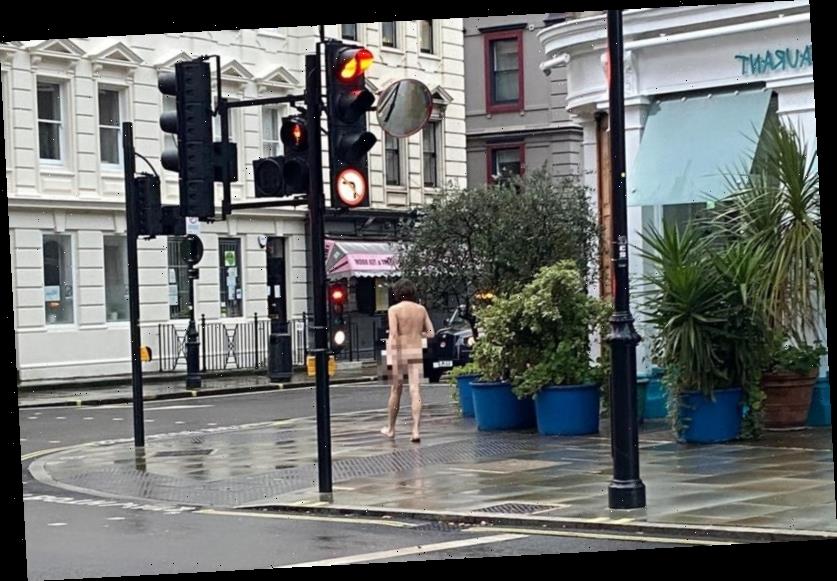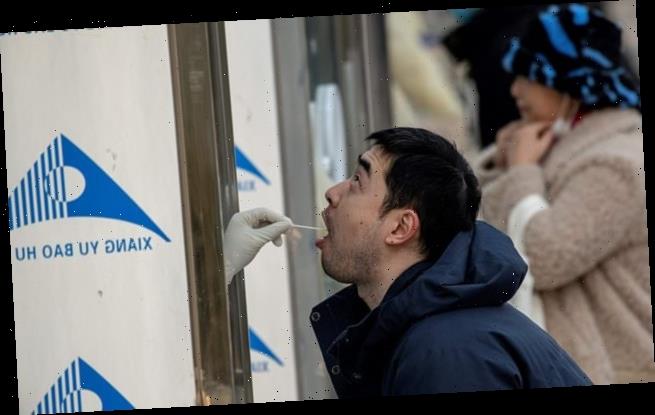In November this year, in the middle of a lockdown, with the country in crisis, I had a documentary on the Holocaust ready to go out.
But for understandable reasons it was felt that the world was quite dark enough, and that the subject matter itself might be too challenging and difficult, and now might not be the right time to ask people to engage.
Like all catastrophes, people intuitively want to be optimistic and there was a general thought that we might be back to normal be over by March. But as it became clear that coronavirus was going to be with us infinitely longer , the programme had to come out regardless.
The documentary, My Family, The Holocaust & Me, hit screens with people stuck at home facing economic crisis, uncertain futures and emotional despair.
That programme was the story of how six million Jews and other minorities were murdered. It’s a story that can’t be described in words, the images of which intuitively make us turn away.
The story of the Holocaust, and how such darkness emerged, must be retold for every generation
But it’s also a story that needs to be told and retold for every generation. It is a story of darkness but within that darkness there is such light.
Perhaps the best way of demonstrating that is not what happened during the programme, but what happened after. Seven million people across the country, many of whom don’t always watch the BBC or may not know even a single Jewish person, tuned in, chose to listen and they became witnesses.
The documentary told the true stories of survivors and descendants of the dead, who described what happened under Nazi tyranny. At the heart of that programme was how the shadow which caused such darkness emerged in the first place.
Every story, apart from my own family’s, took place in Western Europe. Often when we talk about the Holocaust we think immediately of Auschwitz and of something happening in the distant black and white past.
But what we forget is that this took place within Germany, one of the most advanced democracies in the world, a society that looked not dissimilar to our own.
And yet what did you need for evil to thrive? The right economic conditions, people feeling aggrieved by the past, a sense that national pride had been offended. And the wrong person to be in the right place at the right time.
Hitler was able to galvanise a population by saying: “This is who you can blame for your horrifying lot in life.” That was the toxic recipe which led to the deaths of over one million children, among them my grandfather’s entire family.
Viewers will have seen how I sat alongside a woman who at 12 years old witnessed the massacre of my family. As I stood on that earth where they were murdered, which looks exactly the same as it did seventy five years ago, the reaction I had wasn’t just one of sadness.
There is no word in the English language that comes close – it was a sense of despair beyond the reaches of normal words. All I could think was that this was not the only place such an atrocity had been committed, and that’s a sadness I’ll never shake.
Later I found myself standing on the grounds of the concentration camp Treblinka, hand in hand with my mother and the last living Treblinka survivor Leon Ritz. Despite me wanting to say a prayer for my dead family, it was Leon who said no, we should pray for every living person in the world.
Seeing where my family was murdered was a sadness I'll never shake
For him this was a message all of us should remember. We are bound together in humanity, and for humanity’s sake we cannot afford to forget what happened in the Holocaust.
One thing I feel certain about is my optimism in the British public. I believe that if confronted by an authority that required people to commit unspeakable violence against each other, we would choose to be on the right side of history.
But it is critical that we remain witnesses. Democracy, freedom of speech and the rule of law are fragile things. They can be taken away from each and every one of us. We cannot afford to forget what happens when people become complacent, or when they assume that without work and courage democracy will endure.
Darkness only comes when we forget to be that light. We must fight for our values – the values of the Holocaust survivors, the values of the courageous, and the values of the British people.
Today – Wednesday, January 27 – is Holocaust Memorial Day. This year the Holocaust Memorial Day Trust is asking those courageous among us – that’s you – to put a candle in your window at 8pm, to show you remember.
To remind us all of the power of being the light – of who we can be at our very best.
Source: Read Full Article







